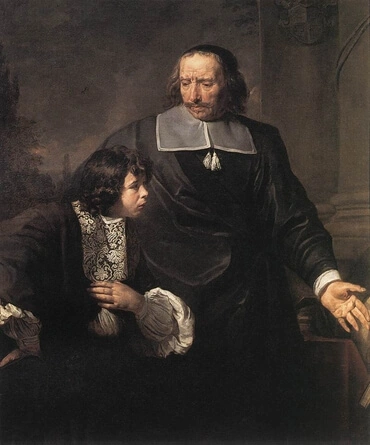Arcana Coelestia #487
487. 'Days means periods of time and states in general. This has been shown in Chapter 1, where the 'days of creation' have no other meaning. In the Word it is very common for a whole period of time to be called 'a day', as it clearly is in the present verse and in verses 5, 8, 11, 14, 17, 20, 23, 27, 31, below; and therefore the states that belong to periods of time in general are meant by 'days' as well. And when 'years' is attached, then periods of years mean the natures of those states, and so the states in particular.
[2] The most ancient people had their own particular numbers which they would use to mean different aspects of the Church - for instance, the numbers three, seven, ten, twelve, and many which they obtained from these and other numbers - and in so doing incorporated states of the Church. These numbers therefore contain arcana that would require considerable effort to unravel. Really a number was an evaluation of the states of the Church. The same feature occurs throughout the Word, especially in the prophetical. And the religious ceremonies of the Jewish Church also entail numbers specifying periods of time as well as quantities; for example, in connection with sacrifices, minchahs, oblations, and other practices, which in every case have special reference to holy things. Consequently eight hundred in this verse, nine hundred and thirty in the next, and the numbers of years mentioned in the verses that follow after that, embody in particular more matters than can possibly be retold; matters, that is to say, which have to do with changes in the state of their Church in relationship to their own general state. Later on, in the Lord's Divine mercy, the meaning of the simple numbers up to twelve will be given, for without knowing these first of all no one can grasp what compound numbers mean.
Man (male)

The relationship between men and women is deep and nuanced, and one entire book of the Writings -- Conjugial Love -- is devoted to the subject. So we can hardly offer a full explanation here. In a very general sense, though, the Writings say that men are creatures of intellect, driven by the love of growing wise; women, meanwhile are creations of affection, driven by the love of wisdom and the good that wisdom can do. They are formed this way to reflect the Lord's Divine Love and Divine Wisdom, and so that they can form marriages that reflect the unity of Divine Love and Divine Wisdom. Marking differences between men and women can be a touchy thing, but realistically it's easy to see that men tend to love acquiring knowledge whether it has any practical application or not. Many of them can spout out sports statistics or hold court on the workings of the internal combustion engine, even though it is knowledge they are not likely to ever use. They find such knowledge interesting for its own sake. It follows, then, that when the Bible speaks of men, the men represent facts, ideas, knowledge, truth, intellect and wisdom -- or in the negative sense falsity, twisted logic, and reasoning that is devoid of concern for others.






